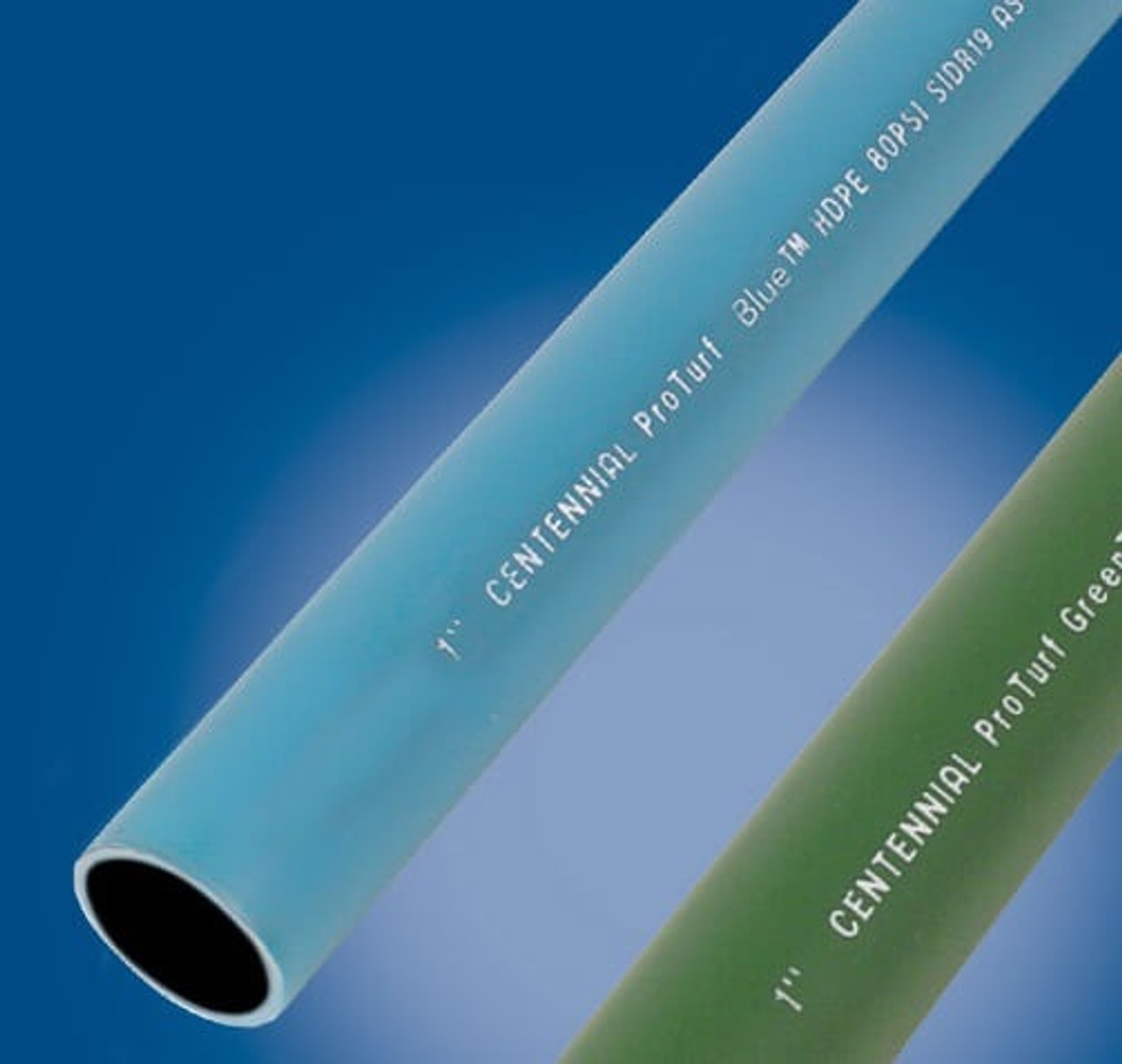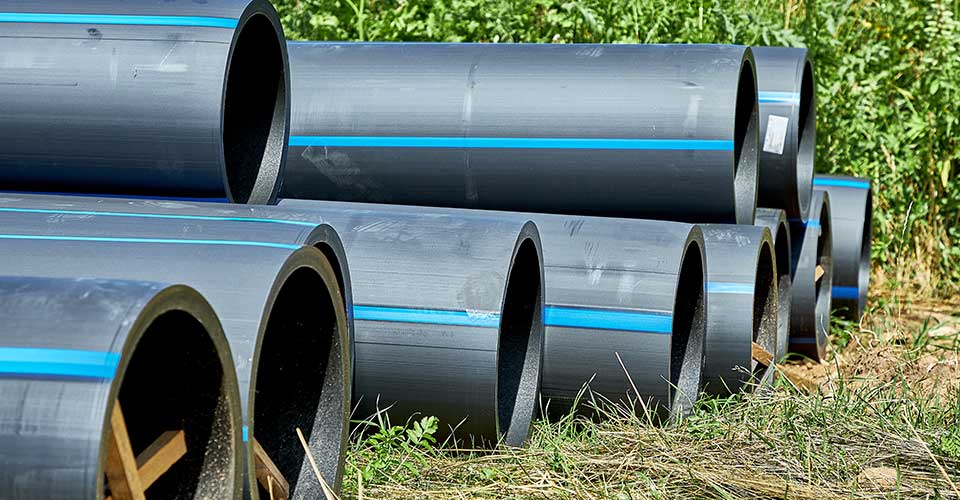A Comprehensive Overview to the Numerous Usages of HDPE Pipe in Building and Market
HDPE pipes have become a critical part in modern building and construction and commercial applications. Their distinct properties, such as resistance to corrosion and lightweight layout, make them suitable for a vast array of uses. From water systems to agricultural watering, HDPE pipelines offer remedies that improve effectiveness and sustainability. Understanding their diverse applications is important for professionals aiming to maximize facilities. What particular advantages do these pipes offer each industry?
Supply Of Water and Distribution Equipments
Water and distribution systems are crucial parts of metropolitan facilities, frequently counting on high-density polyethylene (HDPE) pipes for their longevity and effectiveness. These systems transport potable water from treatment centers to consumers, making sure ease of access and safety and security. HDPE pipes are favored for their resistance to corrosion, chemicals, and extreme temperatures, which improves their longevity and decreases upkeep expenses. Additionally, their light-weight nature enables much easier setup and transportation, making them perfect for different city and rural applications.
The flexibility of HDPE pipes enables them to be set up in limited spaces and around barriers, reducing the demand for substantial excavation (hdpe pipe suppliers Midland TX). Furthermore, their smooth interior surface lowers rubbing losses, enhancing water circulation rates. As cities remain to expand, the demand for dependable water systems raises, positioning HDPE pipes as a lasting option for modern-day framework projects. Their tried and tested track record makes them a favored choice among designers and city planners alike
Wastewater Management and Therapy
Efficient wastewater monitoring and therapy are important for maintaining public health and wellness and ecological top quality. HDPE pipelines play an essential function in this process due to their toughness, resistance to deterioration, and ability to withstand rough chemicals. These pipes are typically utilized in various applications, including sewer system, stormwater water drainage, and wastewater treatment facilities. Their light-weight nature promotes simpler installation and transportation, minimizing labor prices and time.
Additionally, HDPE pipelines have a smooth interior surface area that minimizes friction loss, promoting efficient flow prices. They are additionally less vulnerable to leaks and failures compared to traditional products, making certain that impurities are had properly. Their adaptability permits for adaptability in various soil conditions, making them suitable for diverse ecological setups. As sectors increasingly focus on lasting techniques, using HDPE pipes in wastewater administration systems straightens with objectives for reducing ecological influence and boosting resource recuperation.
Agricultural Irrigation Solutions
In agricultural setups, effective irrigation remedies are important for optimizing crop returns and managing water sources. HDPE (High-Density Polyethylene) pipelines play an important function in contemporary irrigation systems due to their sturdiness, versatility, and resistance to rust. Their ability to hold up against high pressures makes them ideal for both surface area and subsurface irrigation applications, making sure uniform water circulation across areas.
Farmers can make use of HDPE pipes in drip watering systems, which provide water directly to plant roots, reducing wastage and promoting healthy development. Furthermore, these pipes are light-weight and very easy to install, reducing labor prices and installment time. Their lengthy life expectancy and low maintenance needs additionally improve their allure in farming techniques.
Moreover, HDPE pipelines are eco-friendly, as they can be reused and do not seep unsafe chemicals right into the soil. his comment is here This makes them a sustainable selection for farmers aiming to embrace eco-friendly agricultural methods while taking full advantage of efficiency.
Industrial Applications and Processes
Adaptability is a hallmark of HDPE pipelines, making them crucial in different industrial applications and procedures. These pipelines are extensively made use of in chemical processing sectors due to their exceptional resistance to a broad range of corrosive materials. HDPE's lightweight nature, incorporated with high tensile stamina, allows for simple installment and long-lasting efficiency in demanding atmospheres.
In the oil and gas industry, HDPE pipes play an essential duty in carrying hydrocarbons and gases, many thanks to their sturdiness and flexibility - American Plastics HDPE Pipe Manufacturing. In addition, they are employed in mining procedures for the transportation of slurry and other materials, where traditional piping systems may fall short
Furthermore, HDPE pipes are progressively utilized in making facilities for water supply lines and wastewater administration. Their capability to stand up to extreme temperatures and pressures makes them appropriate for a variety of commercial processes. Overall, HDPE pipelines add considerably to efficiency and safety and security across diverse commercial applications.
Stormwater Management and Water Drainage Equipments
Stormwater monitoring and water drainage systems are critical components in urban facilities, created to handle excess rains and decrease flooding dangers. High-density polyethylene (HDPE) pipes are increasingly made use of in these systems because of their sturdiness, versatility, and resistance to corrosion. These pipes efficiently carry stormwater link away from booming areas, decreasing surface area runoff and preventing waterlogging.
HDPE's light-weight nature assists in less complicated installation, reducing labor expenses and image source building and construction time. Furthermore, its resistance to chemicals and ecological stressors warranties longevity and integrity in numerous climates. In addition to conventional drain applications, HDPE pipes are additionally used in innovative solutions such as green facilities, that includes rain gardens and absorptive sidewalks.

Frequently Asked Inquiries
How Does HDPE Pipeline Compare to PVC Pipe in Cost?
Generally, HDPE pipe often tends to be much more costly than PVC pipeline as a result of its enhanced longevity and flexibility. Nonetheless, long-term cost factors to consider, such as upkeep and life-span, might prefer HDPE in particular applications.

What Is the Life Expectancy of HDPE Pipeline Under Numerous Conditions?
HDPE pipes generally have a lifespan of 50 to 100 years, depending on ecological conditions, installation methods, and usage. Variables such as temperature, soil kind, and exposure to chemicals can significantly affect their sturdiness.
Can HDPE Pipes Be Recycled After Usage?
Yes, HDPE pipelines can be recycled after usage. The recycling process entails melting down the product, allowing it to be repurposed into brand-new products, therefore promoting sustainability and lowering environmental effect connected with plastic waste.
Are There Any Type Of Specific Setup Obstacles With HDPE Pipes?
Setup difficulties with HDPE pipelines include appropriate jointing strategies, guaranteeing appropriate trench problems, and managing thermal growth. In addition, experienced labor is needed to handle specialized devices, which can make complex the installment process in different atmospheres.

What Certifications Should I Search For When Purchasing HDPE Pipelines?
When acquiring HDPE pipes, one should seek accreditations such as ASTM, AASHTO, and ISO, which validate high quality and conformity with market criteria, ensuring resilience and efficiency in different applications. - custom hdpe pipe manufacturing Midland TX